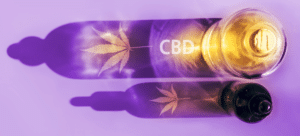Treating Tinnitus With Medical Marijuana and the Best Strains For It.
Research has suggested that the multifaceted drug, medical marijuana could also be used in treating tinnitus. First and foremost, it should be noted that tinnitus co-exists with different disorders, most of which medical marijuana has the potential to cure. For example, most people suffering from Post-Traumatic Stress Disorder (PTSD) are also likely to experience tinnitus.
Tinnitus is a relatively common problem that affects an estimated 50 million Americans on a yearly basis. It’s the perception of noise or ringing in the ears. Tinnitus isn’t exactly a condition on its own, but it’s a symptom of an underlying condition, including age related hearing, an ear injury or even a circulatory disorder. Although this problem usually affects older people, children and adolescents could equally experience it.
In many cases of tinnitus, an exact cause is hardly found, even though it is believed that a number of health conditions can worsen it. One of the most common causes of tinnitus is an inn ear hair cell damage. It should be noted that the inner ear consists of tiny, delicate hairs which move in relation to the pressure of sound waves, thereby triggering cells to release an electrical signal through a nerve from the ear (auditory nerve) to the brain. The brain then interprets these signals as a sound. However, if these hairs inside the inner ear become bent or broken, they can leak random electrical impulses to the brain and this will in turn cause tinnitus.
Tinnitus could also be caused by other ear problems, injuries, chronic health conditions as well as conditions that affect the nerves in the ear or in the hearing center of the brain. The most common conditions that cause tinnitus include earwax blockage, exposure to loud noise, ear bone changes, acoustic neuroma, head/neck injuries, Meniere’s disease, and muscle spasms in the inner ear. Certain medications including water pills (diuretics), antibiotics, aspirin, antidepressants as well as Quinine and cancer medications can also cause tinnitus.
The symptoms of tinnitus may include phantom noises in the ears such as buzzing, ringing, clicking, hissing, humming and roaring. The phantom noise could be heard in one or both ears and it could equally vary in pitch from a low roar to a high squeal.
Although everyone can experience tinnitus, the risk factors turn to increase in older people, smokers, men, people who are exposed to loud noises as well as in people with cardiovascular problems. Tinnitus can also affect the quality of life since it could easily result in conditions such as fatigue, stress, sleeping problems, memory problems, depression, troubles concentrating, as well as anxiety and irritability. To treat tinnitus, your doctor must first of all identify and treat the underlying condition causing it.
Some of the treatment options, therefore include earwax removal, treating a blood vessel condition and even changing medications. Besides, noise suppressing devices such as hearing aids, white noise machines, and masking devices can as well be used to suppress the noise. It is worthy to note that medications can’t cure tinnitus but in some cases, medications like Alprazolam (Xanax) as well as tricyclic antidepressants, such as amitriptyline and nortriptyline could reduce the severity of the symptoms or complications.
Treating Tinnitus with Medical Cannabis
Can cannabis help treat Tinnitus?
This therefore explains why soldiers who have served in dangerous locations or taken part in dangerous wars often return with tinnitus, loss of hearing from loud explosions as well as PTSD. However, CBD, a compound found in medical marijuana has been reported to be effective in treating PTSD and tinnitus associated with it.
This assertion can be explained by the fact that CBD influences the body’s endocannabiniod system, which plays an essential role in maintaining emotional homeostasis and in regulating memory consolidation, retrieval and extension. CBD activates the cannabinoid receptors (CB1 and CB2) of the endocannabinoid system, which in turn modulates the release of neurotransmitter, thereby curbing tinnitus.
Medical marijuana has also been reported to be effective in treating insomnia, which is one of the symptoms of tinnitus. Of course, the recurring and aggravating sounds produced by tinnitus can cause sleeping problems such as insomnia. The findings from a 2014 study that was carried on 30 patients with Attention Deficit Disorder (ADD) revealed that patients who used CBD oil experienced improved sleep patterns and concentration. Even though this study was conducted on sufferers of ADD, it goes a long way to buttress the claim that the extracts of medical marijuana could be used in treating different types of sleeping disorders, insomnia caused by tinnitus inclusive.
Moreover, medical marijuana is also effective in the treatment of anxiety and stress caused by tinnitus. Several studies have shown that CBD is an effective alternative treatment of anxiety. Nevertheless, the need for more research on this topic can never be overemphasized as only a few studies have been conducted so far.
The Best Marijuana Strains for Tinnitus
Some of the best marijuana strains for Tinnitus disease patients include:
- Grandaddy Purple
- Taho OG Kush
- Cannatonic
- Jack Herer
- Harlequin
How To Get a Med Marijuana Card for Tinnitus
If you are a resident of a legal state and want medical marijuana to help treat Tinnitus or other medical conditions, you will first need to consult with a certified doctor in order to get your med card.
To get started, simply fill out the MMJ patient registration form, press submit and a physician or clinic representative will contact you as available.

Sign Up for Medical Cannabis Today!
For potential patients, if you’re ready, we make it easy to connect with a medical marijuana doctor nearby or online. If you are interested in getting certified, please fill out the MMJ patient registration form below and press submit to get started. See if you qualify today!

MedCard Registration Form














